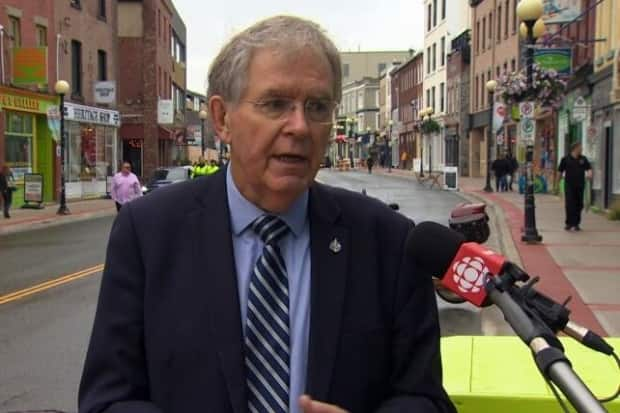Just 257 pardons granted for pot possession in program's 1st year
It has been one year since the government launched a program offering Canadians with a criminal record for simple pot possession a fast, free pardon — but only 257 people have been granted one so far.
Critics say the low number proves the program is "unconscionable" and a "total failure." They're calling on the government to deliver an automatic removal of those criminal records.
According to figures provided by the Parole Board of Canada (PBC), 458 people have applied to the program. Of those, 259 were accepted for consideration, with 257 granted and two discontinued. Another 194 applications were returned because the person was ineligible or the file was incomplete, while five more are still in the works.
PBC spokesman Jon Schofield said the pandemic has slowed the process.
"Due to the COVID-19 situation, the PBC experienced limited capacity to process record suspension applications, which has resulted in delays in their processing," he said in an email.
The government had estimated that about 10,000 Canadians would be eligible for the pardons which, in this instance, are officially known as "record suspensions."
A government official, speaking on background, said numbers may be "lower than anticipated" because people with other criminal convictions apart from simple possession, whether drug-related or not, are ineligible. Others may have already sought a pardon before the program was brought in, the official suggested.
Fees eliminated, process accelerated
The Liberal government passed a law last year to eliminate the program's $631 application fee, waive its five-to-10-year waiting period and to speed up its application process; after it legalized and regulated the possession, cultivation and distribution of marijuana for recreational use in 2018.
At the time, the PBC sent letters to about 2,000 police and other justice partners, and several hundred organizations that deal with youth, mental health and addictions and Indigenous or Black Canadians, to raise awareness about the program and its eligibility criteria.
It also produced an application guide with step-by-step instructions and set up a toll-free information line and email address to answer questions.
While the uptake remains low, Public Safety Minister Bill Blair's office said the pardons system supports the rehabilitation of people who are living crime free.
"Our government delivered on our promise to work toward removing the stigma of a criminal record for people who have shown themselves to be law-abiding citizens. We know that a criminal record for the simple possession of cannabis creates barriers to accessing employment, housing and education. That's why we passed legislation in the last Parliament to waive pardon wait times and application fees for those convicted of simple possession of cannabis," said spokesperson Mary-Liz Power.
Power said the streamlined process removes barriers so those people can "meaningfully participate in their communities, secure good and stable jobs and become fully contributing members of society."
Application process cumbersome, complex
NDP public safety critic Jack Harris said it's "inexcusable" that the government acknowledges the detrimental effects a criminal record for pot has on peoples' lives, yet designed a process that is inaccessible to many because it is cumbersome and complex.
"I think the whole program is a total failure by the Liberals, who promised that they were going to get rid of criminal records for people with simple possession of marijuana," he said.
Harris said the government has acknowledged that systemic racism has led to more marginalized people being convicted, including Indigenous and Black Canadians, yet failed to address it.
"I think the government has to put up on this and not claim to be concerned about systemic racism in our country, in our justice system, in our policing, and not do the right thing," he said.

The NDP has called for the automatic expungement of criminal records for pot possession, a measure many advocates and legal experts agree on.
Expungement is different from a record suspension or pardon because the individual is deemed to have never been convicted of the offence in the first place. It usually occurs when the government deems that law should not have been on the books.
All judicial records are destroyed through an expungement order, while a record suspension keeps those records separate without permanently removing them.
Barriers to housing, employment
Stephanie DiGiuseppe of the Criminal Lawyers Association called it "unconscionable" that the application process still puts up barriers such as ancillary costs and requirements to produce records.
"It basically means that a large number of Canadians continue to suffer barriers to housing, employment, volunteering and living a full and meaningful life in this country due to simple personal possession of cannabis," she said. "So that is not good for those individuals, it's not good for the health of our society generally."
University of Ottawa drug policy expert Eugene Oscapella says one of the reasons people may not be anxious to get a criminal record suspension is because the stigma of a conviction may be less severe now that cannabis has been quickly "normalized" through legalization. Still, he said there should be blanket amnesty instead of making people go through a difficult application process — especially during the global COVID-19 crisis.
"[Marijuana's] social acceptance is certainly much greater than it was before. It's not considered the enormous evil that it once was. Why not just go ahead and wipe these records off the books?" he said.

